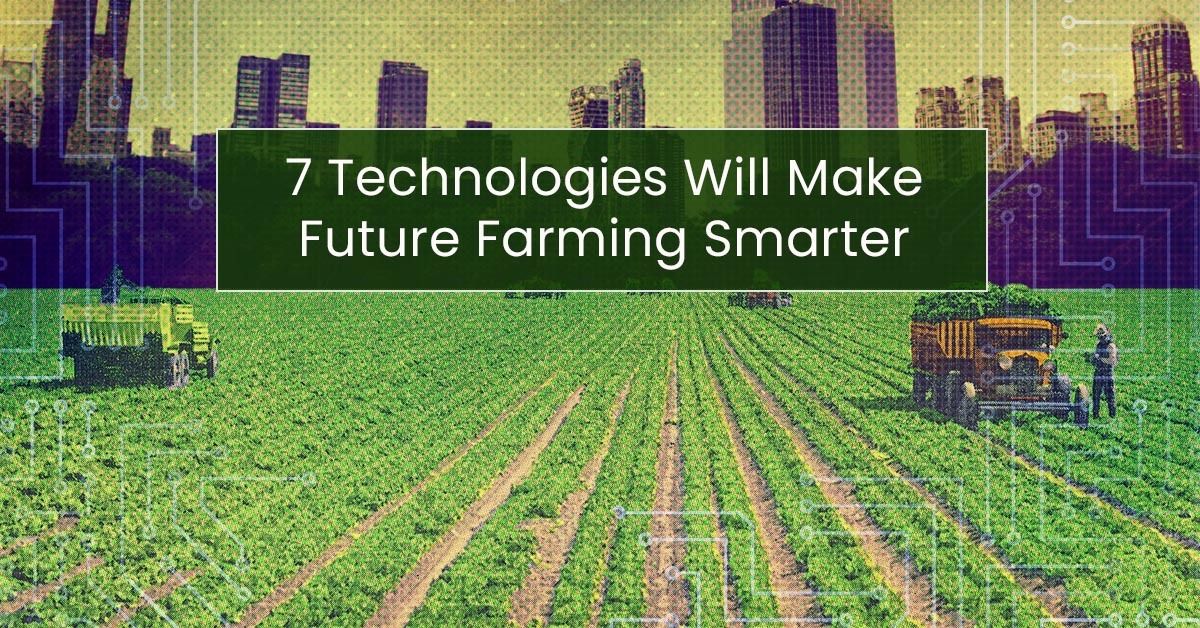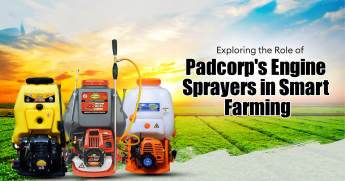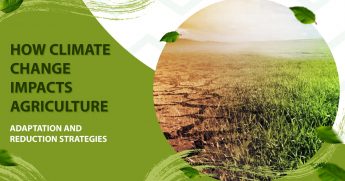Farming or Agriculture is mostly unaffected by the technical revolution, however it is ripe for change and offering opportunities for farmers to adapt various new technological equipment and methods to make it smarter in future. Here in this blog, we are enlisting 7 technologies that will make future of farming smarter and optimised:
1. Soil and Water Sensors
The equipment which has the most immediate effect are soil and water sensors. The sensors are sensors are durable, unobtrusive and relatively economical. This has been proven advantageous for the farmers giving them numerous benefits such as ,these sensors can detect moisture and nitrogen levels, and the farmer can use this information to determine the watering and fertilization schedule rather than relying on a predetermined plan.
It results in more efficient use of resources and therefore lowered costs, it also helps the agricultural practice to be more environmentally friendly by conserving water, limiting erosion and reducing fertilizer levels in local rivers and lakes.
2. Weather forecast accessibility
Computerised weather prediction models has become extremely precise and sophisticated. Several online weather services are present that focus exclusively on agriculture, and farmers can access these services on dedicated platforms such as via mobile apps that run on any consumer smartphone. This technology can give farmers enough data regarding the weather such as frost, hail and rains so that they can take precautions to protect the crops or at least mitigate losses to a significant degree.
3. Satellite Imaging of farm
Remote satellite imaging has become more revolutionised, which allows real-time crop imagery. These are not just an aerial view snapshots, but images in resolutions of 5-meter-pixels and even greater. Crop imagery lets a farmer examine crops by reviewing images on a weekly basis, that can save a farm a considerable amount of time and money. Additionally, this technology can be integrated with crop, soil and water sensors so that the farmers can receive notifications along with appropriate satellite images when danger thresholds are found.
4. Pervasive Automation reducing manual workload
Pervasive automation is a popular term in the smart farming industry, it can refer to any technology that reduces the operator workload. Examples include autonomous vehicles controlled by robotics or remotely through terminals and hyper precision, such as RTK (real-time kinematic) navigation systems that make seeding and fertilization routes optimal as possible.
5. Minichromosomal Technology in plant cells
A minichromosomal is a small structure within a cell that includes very little genetic material but can hold a lot of genetic information. Using minichromosomal, agricultural geneticists can add dozens and perhaps even hundreds of traits to a plant. These traits can be quite complex, such as drought tolerance and nitrogen usage. However, the most intriguing thing about minichromosomal technology is that a plant’s original chromosomes are not altered in any way. That results in faster regulatory approval and wider, faster acceptance from consumers.
6. RFID Technology
The soil and water sensors explained above have set a foundation for traceability. These sensors provide information that can be associated with farming yields. Some expected technologies such as RFID can be actually put tag on a bag of farm produce where a barcode can be scanned form your smartphone in order to access data about the soil that yielded them.
7.Vertical Farming method
Vertical farming seemed impossible in the past, however this technology is now viable component of urban agriculture practice for producing food in vertically stacked layers. This offers many advantages like the ability to grow within urban environments and thus have fresher foods available faster and at lower costs. However, vertical farming is not limited to just urban environments, farmers in hilly landscapes are also opting for it.
Conclusion
Technology is transforming almost each aspect of modern agricultural practices, it has opened up a new horizon for smart farming methods for farmers making it no longer a tedious job. The food production has increased and now reaches the table faster, fresher and more cost-effectively due to these cutting-edge technology in agriculture. Padgilwar Corporation is a pioneer in producing advanced agricultural equipment improving the lives of farmers across India. Get in touch with us for procuring the latest farm equipment from us.



